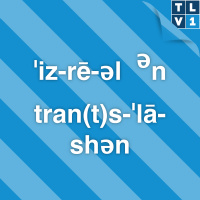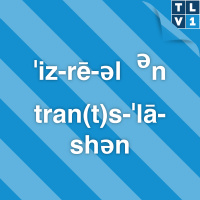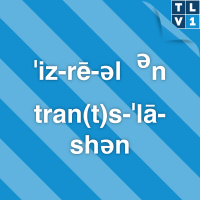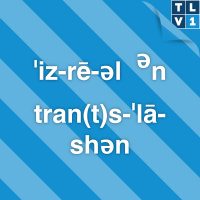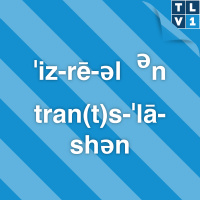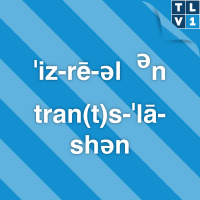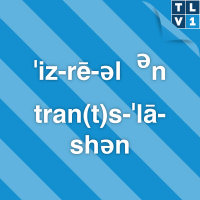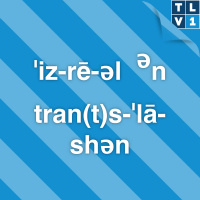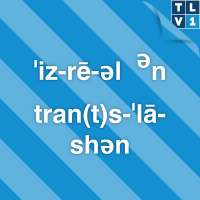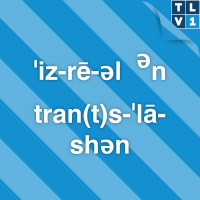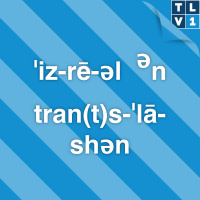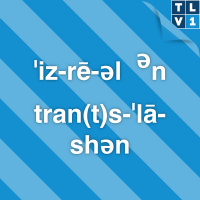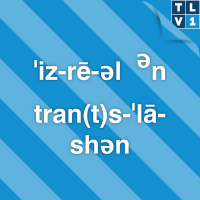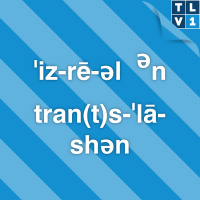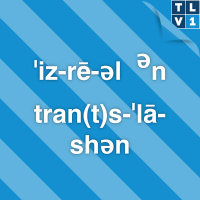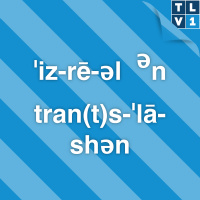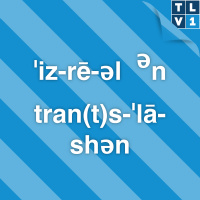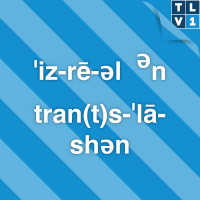Synopsis
Exploring Israeli literature in English translation. Host Marcela Sulak takes you through Israels literary countryside, cityscapes, and psychological terrain, and the lives of the people who create it.
Episodes
-
Poems for Rosh Hashanah and Yom Kippur
05/10/2016 Duration: 08minIn honor of the Jewish new year - Rosh Hashanah - and the upcoming day of atonement - Yom Kippur - host Marcela reads poems on these themes by some of Israel's most exciting poets. She reads "Origin of the World" by the controversial and provocative young poet Noam Partom, which begins like this: "I hereby close the gates between my legs till further notice For an unlimited period, due to maintenance. No bearers of first fruit will come No pilgrims will make pilgrimage No prayers made under the empty skies, Not a single butchered sheep is to be offered as a sacrifice Upon my tortured holy altar. The origin of the world was found to be rotten. All men are corrupt. All sexual activity – an abomination." The podcast also features the poetry of Alex Ben-Ari, a computer engineer who moved to Israel from the Soviet Union when he was three. Plus Marcela reads "A Heart-to-Heart Prayer" by "wordman" David Avidan, a poet who died in 1995 after a long career that had a legendary, liberating influence on the form and c
-
Hava Pinhas-Cohen: Poems for the month of Elul
28/09/2016 Duration: 07minAs we are in the month of Elul - a month of preparation for the major Jewish holidays - host Marcela Sulak dedicates this week's podcast to poems that give a female insight into the holidays to come: Rosh Hashanah, Yom Kippur and Sukkot. All the poems are by Hava Pinhas-Cohen, here is an excerpt from "Follow the Arrow": "Now in Jerusalem, the Ashkenazi Jews are reciting the Selichot prayers. The Sephardi Jews began three weeks ago, chanting El Malei. Only the lines I left in the margins of pages I keep in drawers confirm that the weeping is long, and that it repeats itself like a Mizrachi song, without resolution, without mercy." For more information about the fascinating Hava Pinhas-Cohen, listen to our previous podcast "Poetry that bridges the divide." Text: The Selected Poems of Hava Pinhas-Cohen: Bridging The Divide. Bilingual Edition. Edited and Translated by Sharon Hart-Green. Syracuse University Press, 2015. Music:Freha Bat Yosef - Face Us In Mercy Matti Caspi - Hine Hine Hagevatron - Unetaneh Tokef
-
Mahmoud Darwish and the song of the oud
21/09/2016 Duration: 08minLast week Muslims celebrated the holiday of Eid al-Adha, which remembers how Abraham was prepared to sacrifice his son to God. Muslims believe Abraham's son to be Ishmael (not Isaac, as mentioned in the Bible). In honor of this festival, host Marcela Sulak reads two poems by Mahmoud Darwish. Here is the beginning of "Ismael's Oud": "A mare dances on two strings—that’s how Ismael’s fingers listen to his blood. The villages scatter like poppies in the rhythm. There’s neither night there nor day. Divine tarab touches us. All points rush towards the elemental Hallelujah. Hallelujah. Everything will begin anew." ["Tarab" is an Arabic term for experiencing ecstasy in music] Darwish is considered the Palestinian national poet. He was born in a village in the Galilee in 1942. He and his family fled to Lebanon in 1948, and his village was destroyed by the Israeli army. Returning to the newly formed state of Israel a year later, Darwish remained there until 1970, when he left to study at the University of Moscow, bef
-
Women's Hebrew Poetry on American Shores
14/09/2016 Duration: 08minNot all literature published in Hebrew in Israel is written by Israelis. Today, host Marcela Sulak reads the poetry of Annabelle Farmelant, an American poet born and raised in Boston who writes in Hebrew. She was living in Tel Aviv when her books appeared with Kiryat Sefer in Jerusalem in 1960 and 1961. Not surprisingly, much of Farmelant's poetry focuses on language and identity. Here is her poem "Builder": "Though you swam in the sea, you're not like a fish, though you took off in flight, you're not like a bird— The towers of Babel you built wrecked over the man dwelling in the poet's wings. The eagle is proud, the dove is weak and he gropes without a chisel or a brush for the light in the dark." Farmelant claims that Hebrew came naturally to her as the language of her poetry. However, the Hebraic world of East European Jewish immigrants, among which Farmelant studied, was male dominated. So her only model as a female Hebrew-language poet was Rachel. Sometimes Farmelant appropriated the Greek lyric poet S
-
The wisdom of Meir Wieseltier
08/09/2016 Duration: 07minMeir Wieseltier is one of Israel's foremost poets. A winner of the Bialik Prize and the Israel Prize, he has published 13 collections of poetry. In honor of the month of Elul, in which, among religious Jews, the "shofar" horn is blown each day, host Marcela Sulak read's Wieseltier's poem "Wisdom." "The whole of my wisdom contracts to the bulk of a fly on a bright window-pane, what were mountains and vales are but a scratch on glass." Marcela reads several other poems by Wieseltier, which tackle life's painful realities, searching for values in the midst of chaos. Wieseltier was born in Moscow in 1941, and immigrated to Israel when he was a child. He grew up in Netanya and, in 1955, moved to Tel Aviv where he has lived ever since. Text: Poets on the Edge: An Anthology of Contemporary Hebrew Poetry, Tzipi Keller, SUNY Press 2008. Further reading:Poetry International Rotterdam Music:Zohar Argov - Lihiot Adam Felix Mendelssohn - Songs Without Words, Op.30 no.1 in E flat Major Ernest Bloch - From Jewish Life (P
-
Stories not swords in "The Secret Book of Kings"
31/08/2016 Duration: 05minThe Secret Book of Kings, the fifth of Yochi Brandes' six novels, appeared last week in English translation. It's the first of the best-selling writer's novels to be translated into English. Brandes retells the stories of the House of Saul and of the northern Kingdom of Israel, stories that were artfully concealed by the House of David and the scribes of the southern Kingdom of Judah. Host Marcela Sulak reads an excerpt from the first part of the novel, narrated by the child Shelomoam. "The Judeans refuse to accept the superiority and leadership of the tribe of Joseph. Sometimes they use force against us, like when Caleb ben Jephunneh tried to rebel against Joshua, and at other times they use stories." "Stories?" I asked with wonder. "But stories aren’t weapons." Mother answered with a grave expression on her face that stories are more dangerous than swords. Swords can only harm those standing right in front of them, while stories determine who will live and who will die in future generations. Brandes was b
-
The true story of a made-up Mossad operative
24/08/2016 Duration: 07minYiftach Atir’s novel, The English Teacher, is newly appeared in English translation this year. Host Marcela Sulak reads some excerpts from the book, including Atir's opening note: "The book you are holding in your hands is the true story of what never happened. This is the story of a Mossad operative. She and others like her operate alone for extended periods of time, deep in enemy countries. Unlike their front-line soldier counterparts, these secret soldiers are armed with nothing but a foreign passport, a fake identity, extensive training, and inexplicable courage." Atir was born in 1949 on a kibbutz in the south of Israel. As a young military officer, he participated in Operation Entebbe as well as other, still-classified, military and intelligence operations. The English Teacher is the third of his four novels. Text: The English Teacher by Yiftach Atir. Translated by Philip Simpson. Penguin Books, 2016. Music: Rami Fortis - Shkiata Shel HaZricha Alberto Iglesias - "George Smiley" (from Tinker Taylor Sol
-
Mosquito: Roy Chen's mini-metamorphosis
17/08/2016 Duration: 10minHost Marcela Sulak reads the short story "Mosquito" by Roy Chen. Set in Tel Aviv on the city's "White Night," it follows an author and his girlfriend as they make their way to an evening of literary readings at a local café-bookstore: "Tel Aviv grinned like a little girl with tooth decay while she puffed on a pipe held in the corner of her mouth. Cars honked, ice cream dribbled, dogs peed on sycamore trees. City flags flew atop balconies. Fireworks were launched into the sky from the beach, lighting up all the air-conditioners, antennas, and solar water heaters that clung to the buildings like leeches." Chen's "author," who is supposed to be reading his work at the event, has been on edge from the start. Inside the claustrophobic café he must endure bad poetry and even worse conversation... until he loses his patience. Text: "Mosquito" by Roy Chen, translated by Jessica Cohen in World Literature Today, Vol.89, No.3/4. May-August 2015. Music: The Dave Brubeck Quartet - For All We Know; Southern Scene; King F
-
Buczacz: A city in its fullness
10/08/2016 Duration: 08min"This is the chronicle of the city of Buczacz, which I have written in my pain and anguish so that our descendants should know that our city was full of Torah, wisdom, love, piety, life, grace, kindness, and charity." So begins Shai Agnon's epic story cycle entitled A City in Its Fullness - a literary memorial to the city of his birth, now called Buchach in Western Ukraine. In honor of the 50th anniversary of Agnon's receipt of the Nobel Prize in Literature (Agnon is the only Hebrew language writer ever to receive the prize), and in honor of the upcoming Jewish fast of Tisha b’Av, host Marcela Sulak reads from a story in this cycle called "Pisces." It's about a householder called Fishl Karp, a portly man who loves food and gets distracted on his way to the synagogue one morning: "He met a fisherman with his net coming from the Strypa. He was stooped under the weight of the net, and the net was shaking itself and its bearer. Fishl looked and saw a fish quivering there in the net. In all his days, Fishl had
-
Shai Agnon's "Book of the State"
03/08/2016 Duration: 07minShai Agnon is the only Hebrew-language writer to have received the Nobel Prize in Literature. To celebrate the 50th anniversary of Agnon being awarded the prize, Toby Press has been releasing Agnon's work in English translation. Today, host Marcela Sulak reads from Agnon's introduction to the "Book of the State," one of his little-known political satires. "... The State is a metaphysical concept rendered into something physical which feigns meta-physicality. When you attempt to approach it as a meta-physical entity it slips back into physicality; if one considers it in physical terms it suddenly reverts into meta-physicality." In this introduction, we see the role Agnon envisioned for himself as someone standing at the crossroads - a traditional figure between eastern European traditional Orthodoxy and modern Israeli life. Text: "Introduction," translated by Sara Daniel, in The Orange Peel and Other Satires. S. Y. Agnon. With annotations and a foreword by Jeffrey Saks. Toby Press, 2015. Music: Avishai Cohen
-
"Did you pack it yourself?"
27/07/2016 Duration: 06minIt's summer holiday season, and most of us will probably be asked when we arrive at the airport, "Did you pack it yourself?" - referring, of course, to our luggage. Israeli poet Orit Gidali answers her interrogation like this: "Of all the questions to ask: Did you pack it yourself? Yes, by myself. It was hard, I said, but it is harder to fear that it will never come. I am not beautiful, you see, and the heart is the size of a fist." Today's podcast features the newly-released collection, Twenty Girls to Envy Me: Selected Poems of Orit Gidali, translated and introduced by none other than our host Marcela Sulak. Gidali's poetry appears to focus on domestic issues like airport questions and Shabbat preparations, but Marcela explains that she's actually reworking the geopolitical on an individual scale. Gidali has published three collections of poetry, as well as a children's book. Text: Twenty Girls to Envy Me: Selected Poems of Orit Gidali, translated by Marcela Sulak. University of Texas Press, 2016. Music:
-
Tahel Frosh and the Mountains of Spain
20/07/2016 Duration: 07minToday, host Marcela Sulak reads the work of Tel Aviv-based poet Tahel Frosh. Her debut poetry collection, from which these poems have been chosen, was published in 2014. Translator Adriana Jacobs calls it one of the most urgent and political books of poetry published in recent years. Here is an excerpt from "The Mountains of Spain": "All of this is so impossible that it holds back thoughts of love and lust and my will to breathe the air after rain so much that I’ll lose myself in a book called Cocaine Nights and get mad when I read about people with money, so much money that they retire to the mountains of Spain and sunbathe in fancy villas at the age of thirty-eight." Frosh’s stunningly crafted poems, which include a number of prose poems, offer a critique of Israel’s free-market economy, the housing crisis, and globalization through the perspective of Israel’s working class. She has degrees in law and psychology, and is currently working on a doctorate in literature. She co-edited the anthology Avodat Gil
-
Death of a Monk: Retelling the Damascus Affair
14/07/2016 Duration: 07minHost Marcela Sulak reads from the novel Death of a Monk by Israeli novelist and playwright Alon Hilu. It's an innovative retelling of the 1840 Damascus Affair, a blood libel against the Jewish community of Damascus, from the perspective of Aslan Farhi, a young Damascene Jew who ends up being at the center of the blood libel accusations. "My happy friend, while I impart the these words to you, and as you record them with your industrious fingers and with expression in your large brown eyes, I would ask your indulgence in reviving for a few moments the former, innocent image of Aslan, the image of a hollow-cheeked youth, whose days were as roses, plagued by persecution at the hands of members of his household." Published in 2006, Death of a Monk won the President’s Prize for debut novel. Hilu's second novel, The House of Rajani, was published in English in 2010. Text: Death of a Monk by Alon Hilu, translated by Evan Fallenberg. Harvill Secker, 2006. Music: Derya Türkan - Nikriz Peşrev Traditional - Üsküdara G
-
The voices of snipers on the Israel Defense Forces radio station
06/07/2016 Duration: 06minToday, host Marcela Sulak reads the poetry of Mei-Tal Nadler, whose work distorts and defamiliarizes the Israeli locale in ways that are political, lyrical, and alarming. This is the beginning of "The Voices of Snipers on the Israel Defense Forces Radio Station*": "The voices of snipers can’t be heard over the radio waves of the IDF Station. But they chose songs for us before they left. What songs do snipers like? I focus all my listening on their musical choices, till my focus becomes a gaze. Perhaps that’s how snipers are trained..." Nadler received the 2014 Teva Prize in Poetry and the 2008 Ministry of Culture award for emerging poets. Her debut collection, "Experiments in electricity," was published in 2013. She is a doctoral candidate in Hebrew literature at Ben-Gurion University and a research fellow at the Israel Democracy Institute. Text: Three poems by Mei-Tal Nadler in World Literature Today, translated by Rachel Tzvia Back. Music: Rockfour - Avshalom Vaadat Charigim - Ein Li Makom Ray Charles - H
-
One Night, Markovitch
22/06/2016 Duration: 08minLast week we featured Ayelet Gundar-Goshen’s latest book, Waking Lions. This week, host Marcela Sulak reads from Gundar-Goshen’s first novel, the Sapir Prize-winning One Night, Markovitch. The novel opens on the eve of World War II, with a group of young men setting out from Mandate Palestine to participate in fictitious marriages with Jewish girls who wish to escape Europe and reach the Jewish homeland, then under British rule. "He felt Sonya’s entrance into the room before he saw her, because over the last six weeks he had learned to pick out the smell of oranges even on a busy street. Therefore he had several seconds to compose himself before turning around and facing her in her ordinary blue dress, part of a sweet routine that was not his." Gundar-Goshen was born in Israel in 1982, and she has already achieved great success in writing for television and film. Text: One Night, Markovitch, by Ayelet Gundar-Goshen. Translated by Sondra Silverston. Pushkin Press, 2015. Further reading: Waking Lions by Ayele
-
Waking Lions: A story of secrets and extortion
15/06/2016 Duration: 07minHost Marcela Sulak reads from Ayelet Gundar-Goshen's novel Waking Lions, published in English translation in March 2016. The opening of the novel describes the moment when Dr. Eitan Green, who has just come off a 19-hour shift at Beer Sheva Hospital, has an accident... "He is thinking that the moon is the most beautiful he has ever seen when he hits the man. For the first moment after he hits him he’s still thinking about the moon, and then he suddenly stops, like a candle that has been blown out." Gundar-Goshen was born in Israel in 1982. Her film scripts have won prizes at international festivals, and Waking Lions is her second novel. Text: Waking Lions by Ayelet Gundar-Goshen. Translated by Sondra Silverston. Pushkin Press, 2016. Further reading: One Night, Markovitch, by Ayelet Gundar-Goshen. Translated by Sondra Silverston. Pushkin Press, 2015. Music: Mike Patton - Contrapositive (The Solitude of Prime Numbers OST) Mike Patton - Weight of Consequences (The Solitude of Prime Numbers OST) Ennio Morricone
-
Dolly City, where Kafka meets Tel Aviv
01/06/2016 Duration: 06minWhen Orly Castel-Bloom’s Dolly City was first published in 1992, the French paper "Le Monde" declared that "Kafka has finally arrived in Tel Aviv." Host Marcela Sulak reads two excerpts from Castel-Bloom's remarkable novel, which was translated into English by Dalya Bilu in 2010. "First of all, I decided I would inoculate the child against as many diseases as possible. I ran outside to buy vaccines against tetanus, whooping cough, diphtheria, polio, measles, jaundice, scarlet fever, small pox, influenza, etc., and I gave them to him all at once—though I knew you shouldn’t do this. I couldn’t stop myself, I couldn’t control my maternal instinct. The child reacted immediately with a high fever and convulsions..." Dolly City has been included in the UNESCO Collection of Representative Works, and in 1999 Castel-Bloom was declared one of the 50 most influential women in Israel. Hear our previous podcast on Orly Castel-Bloom's short story "Heathcliff." Text: Dolly City by Orly Castel-Bloom. Translated by Dalya Bi
-
"Dear Perverts": The poetry of Hezy Leskly
25/05/2016 Duration: 09minPoet, choreographer, and dance critic Hezy Leskly was born in Israel in 1952 to Czech Holocaust survivors. Host Marcela Sulak reads from the only collection of Leskly's poetry to be translated into English, Dear Perverts, translated by Adriana Jacobs. Here is the beginning of the poem "I’m six, on a walk with my parents, Saturday late afternoon": "My father—the hammer poised above the plate, My mother—the snake of love, And I—a girl with a dick; We set out on the path traced with my tongue. When I tried to eat from the plate at the edge of the path, the hammer struck the fingers of my left hand, and the snake of love smiled and commanded: “Shpatzirn!”" Leskly studied photography and dance, and at 22 he settled in the Netherlands, where for seven years he studied multi-media. He returned to Israel in 1980, where for the next ten years he worked as dance critic for a Tel Aviv weekly. If you want to hear more Leskly, come to Bar-Ilan University on Monday, May 30, where you can hear Adriana Jacobs read these tr
-
David Grossman's "Falling Out of Time"
18/05/2016 Duration: 08minHost Marcela Sulak reads an excerpt from David Grossman's most recent novel, Falling Out of Time, which is partly a folk tale, partly a play, and partly a novel in verse. In the story, a man known as the "walking man" sets off in search of his dead son, pacing in ever-widening circles around his village and picking up other villagers who've lost their children along the way, like a Pied Piper of bereavement. "TOWN CHRONICLER’S WIFE: As they commingle, so two rivers flow into my confluence. I did not know, not this way, that life in all its fullness is lived only there, in borderland. It is as though I never yet have lived, as though all things that happened to me never really were, until you— WALKING MAN: And he is dead. I understand, almost, the meaning of the sounds: The boy is dead. I recognize these words as holding truth. He is dead, he is dead. But his death, his death is not dead." Falling Out of Time can be said to be a strange sort of sequel to Grossman's previous book, To the End of the Land, whi
-
Poet Agi Mishol on "Holocaust, Remembrance, Independence"
11/05/2016 Duration: 08minAgi Mishol's latest book of poetry, Less Like a Dove, is published in English translation this month. Host Marcela Sulak reads a selection of poems from the collection, including "Holocaust, Remembrance, Independence" in honor of Israeli Independence Day, which begins tonight. "How we flew – Not from Gadera to Rehovot or up the Castel en route to Jerusalem, like in those dreams, but outside of the stratosphere: My father, myself and that blurry one called Agnes, who in nineteen fifty changed her name to Agi, and since then this hollow girl has tailed my father, who was her father as well." Agi Mishol was born in Transylvania, and is the daughter of Holocaust survivors who arrived in Israel in 1950. She lives in an agricultural community and directs the Helicon School of Poetry in Tel Aviv, where she teaches creative writing. Hear our Lag B'Omer podcast featuring Agi Mishol from May 2015. Hear last year's Independence Day podcast featuring Amos Oz's "A Tale of Love and Darkness." Joanna Chen will launch her

